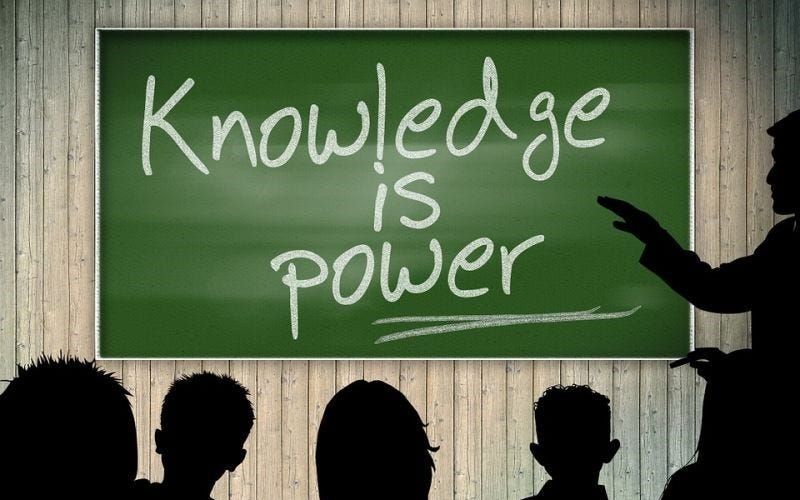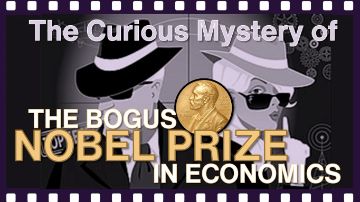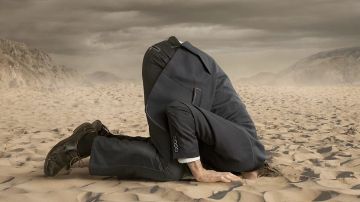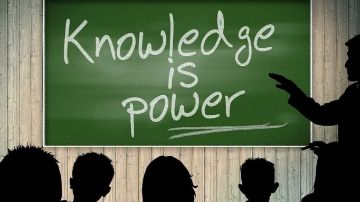
Let’s assume: KNOWLEDGE = POWER. But what if… KNOWLEDGE = Fn(Self)? Then it would follow that knowledge becomes power only if we understand our identity in terms of the amount of power we wield. The only knowledge we value is that which makes us more powerful.

Let us assume for a moment that the old adage is correct:
(1) KNOWLEDGE = POWER. But what if…
(2) KNOWLEDGE = Fn(Self)?
Then it would follow that:
(3) Knowledge = Power => ONLY IF: Fn(Self) == Power
In other words, knowledge becomes power only if we understand our identity in terms of the amount of power we wield. The only knowledge we value is that which makes us more powerful.
Seems rather basic? Well, not necessarily. It points to a fundamental onto-epistemological conundrum. Is knowledge simply out there to be discovered by us? Or is it just subjectively inside us? Here I am - as rarely happens - with Ken Wilber (and Dreyfuss): knowledge is neither fixed and external, to be divided in some zero-sum struggle, nor just dependent on subjective perspectives, but rather a function of personal identity. What we CAN know depends on WHO we are. So, if knowledge is power, it says more about ourselves than about knowledge. We are at a state of maturity where we instrumentalise our world, and consequentially, ourselves.
That would also imply that we hold a maximum amount of knowledge when we are at our very best:
(4) MAX Knowledge <=> MAX Fn(Self)
In fact, Socrates suggested that knowledge and goodness are ultimately the same. If we fail to be good, it just shows our deficiency of knowledge, rather than that humans are intrinsically evil. In other words:
(5) VIRTUE <= max KNOWLEDGE
Does this mean we just need to learn more in order to be good? Or be good in order to learn more? This is where I somewhat disagree with both ancient scholastics (who sought perfection through sophisticated dialectics) as well as modern mystics (who advocate deep consciousness as the key to salvation). Dialectics or "consciousness" as such are worth little - beyond "intellectual self-celebration" - if it does not lead to wise action.
Instead, I believe Aristotle was right: it is not enough to know in order to be virtuous. Knowledge begets WISDOM when it is enacted for good throughout our lives.
(6) CHARACTER <=> PRACTICAL WISDOM are indeed two sides of the same coin.
Eventually, knowledge changes us, and our conscious and committed acting "with knowledge" changes the character of the knowledge we hold. Good living requires habitual and purposeful cultivation of character, based on and constituting wisdom, i.e., the ability to contextualise our own lives within the whole, and to connect our contingent acting with the essence of who we shall be. When we combine curiosity and zest for learning with a commitment to use our personal power to become our best self, we truly grow.
#leadership #leadershipdevelopment #power
Let us assume for a moment that the old adage is correct:
(1) KNOWLEDGE = POWER. But what if…
(2) KNOWLEDGE = Fn(Self)?
Then it would follow that:
(3) Knowledge = Power => ONLY IF: Fn(Self) == Power
In other words, knowledge becomes power only if we understand our identity in terms of the amount of power we wield. The only knowledge we value is that which makes us more powerful.
Seems rather basic? Well, not necessarily. It points to a fundamental onto-epistemological conundrum. Is knowledge simply out there to be discovered by us? Or is it just subjectively inside us? Here I am - as rarely happens - with Ken Wilber (and Dreyfuss): knowledge is neither fixed and external, to be divided in some zero-sum struggle, nor just dependent on subjective perspectives, but rather a function of personal identity. What we CAN know depends on WHO we are. So, if knowledge is power, it says more about ourselves than about knowledge. We are at a state of maturity where we instrumentalise our world, and consequentially, ourselves.
That would also imply that we hold a maximum amount of knowledge when we are at our very best:
(4) MAX Knowledge <=> MAX Fn(Self)
In fact, Socrates suggested that knowledge and goodness are ultimately the same. If we fail to be good, it just shows our deficiency of knowledge, rather than that humans are intrinsically evil. In other words:
(5) VIRTUE <= max KNOWLEDGE
Does this mean we just need to learn more in order to be good? Or be good in order to learn more? This is where I somewhat disagree with both ancient scholastics (who sought perfection through sophisticated dialectics) as well as modern mystics (who advocate deep consciousness as the key to salvation). Dialectics or "consciousness" as such are worth little - beyond "intellectual self-celebration" - if it does not lead to wise action.
Instead, I believe Aristotle was right: it is not enough to know in order to be virtuous. Knowledge begets WISDOM when it is enacted for good throughout our lives.
(6) CHARACTER <=> PRACTICAL WISDOM are indeed two sides of the same coin.
Eventually, knowledge changes us, and our conscious and committed acting "with knowledge" changes the character of the knowledge we hold. Good living requires habitual and purposeful cultivation of character, based on and constituting wisdom, i.e., the ability to contextualise our own lives within the whole, and to connect our contingent acting with the essence of who we shall be. When we combine curiosity and zest for learning with a commitment to use our personal power to become our best self, we truly grow.
#leadership #leadershipdevelopment #power
Popular articles in the KnowledgeHub: Critical Thinking




 .
.